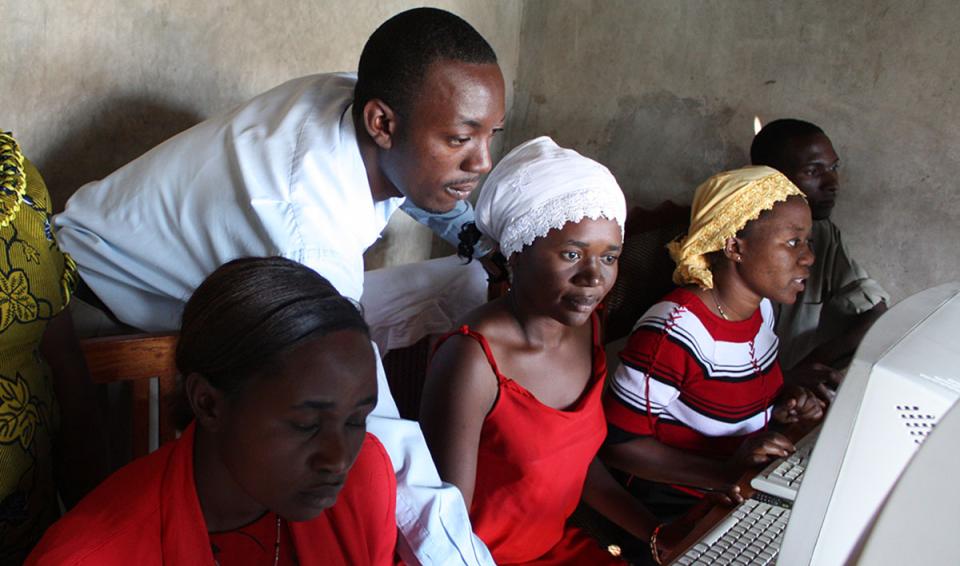
Ahead of the launch of our Women’s Rights Online research, this series of guest blogs features on-the-ground perspectives from each of our research partners around the world. In this post, Irene Murungi, Gender Policy Officer at Women of Uganda Network (WOUGNET), talks about why it’s important to get more Ugandan women online and involved in internet policy debates.
WOUGNET envisions a society where women enjoy equal internet access and rights. When we look at our country, we see opportunities for information and communications technologies (ICTs) to address the challenges of sustainable development at the local and national level. And we know women must be at the heart of that process.
Unfortunately, that has not yet happened, and women often remain on the sidelines of ICT policy and initiatives. We are still working hard just to get the issue of online gender equality onto the government’s priority agenda. When we fight for this, we are faced with a number of questions: Why focus on women and technology when only 18% of the population is online When we have one of the highest levels of violence against women When our youth unemployment rate is rising When we know so many Ugandans are living in poverty
But these questions miss the bigger picture. When women get online, they can learn about their rights and how to report violence. They have more opportunities to start businesses and look for jobs. They can educate themselves and improve their livelihoods. This is why we cannot wait ‒ we must make sure the possibilities offered by the internet are available to all women. It must be an integral part of our roadmap to sustainable development now, not a nice-to-have for the future, or we risk leaving many women behind.
In Uganda, our mission faces a number of challenges:
1) Getting women connected in a predominantly rural country with a low average income
2) Providing women with the skills to access the Web, when our female literacy rate is only 71.3%
3) Media reporting biased against women and their use of technology
4) Changing social norms that view a woman’s role predominantly as a homemaker, not an internet user
5) Safety online – high levels of gender based violence offline translate into the online world through cyber stalking and harassment online, including the use of photos as blackmail.
Given the gender inequalities in income, education and perceptions about women’s right to use the Internet, it is clear that Ugandan women face particularly daunting obstacles in trying to access and make use of ICTs. Our experience of the internet is simply different. But we cannot be ignored, we must be brought into policy discussions to make sure gender inequality is not exacerbated by a lack of internet access for women. Instead, we should ensure the internet becomes a great equaliser for us.
The most critical changes in policy direction needed are the guarantee of freedom of expression and association and laws that ensure a safe space for discussion and collaboration. To date, our campaigns have highlighted gender concerns in Uganda’s cyber policies, and we have raised awareness of current trends in Uganda’s digital environment through the GISWatch report published in partnership with the Association for Progressive Communications (APC).
Yes, as a country we have many large challenges, of which internet access and women’s rights online is only one. But that does not mean we should not begin today and secure our future. And we want to make sure that future includes increased participation of women in political, social and economic discussions online. And most importantly, to do this we must eliminate the abuse of women’s safety and privacy online, ensuring that women feel empowered and entitled to use the internet and benefit from it on equal terms with their male counterparts.
This blog post was originally published in the website of the World Wide Web Foundation
Image by IICD used under Creative Commons license CC BY 2.0.
- 3752 views





Add new comment